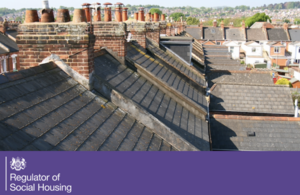RSH highlights the importance of landlords understanding tenants’ homes
RSH’s standards require landlords to have a strong understanding of stock condition.

A new report from the Regulator of Social Housing (RSH) sets out the importance of social landlords understanding the condition of tenants’ homes. The report concludes that this is essential for keeping tenants safe and underpins effective long-term investment planning.
RSH’s standards require landlords to have a strong understanding of stock condition. Through its regulatory activity, including inspections, RSH has found that landlords who demonstrated a stronger approach had some or all of the following features:
-
Having up to date stock condition survey coverage of their homes, which they use to respond quickly to rectify hazards and Decent Homes Standard failures.
-
Using stock condition data to build a strategic approach to investment and provide better value for money, by proactively addressing potential issues through planned major repairs, rather than fixing issues responsively.
-
Demonstrating effective data management processes, by triangulating data from a range of sources to inform long-term financial planning and stress test business plans.
-
Having effective governance processes and oversight, with clear reporting to boards or councillors.
-
Using suitably skilled and accredited surveyors to carry out the work.
Almost all the C3 and C4 judgements that RSH has published since April 2024 related at least in part to the landlord failing to meet the Safety and Quality standard. In nearly three quarters of these cases, the issues included low stock condition survey coverage or a failure to demonstrate an understanding of tenants’ homes. Weaknesses in data quality has also been an important theme in governance downgrades, where some landlords have failed to use data to support key decisions including long-term investment planning.
Boards and councillors must ensure their organisation has an accurate, up-to-date and evidenced understanding of stock condition. This enables the provision of good quality homes and supports the strategic planning of major repairs programmes.
RSH will continue to use a range of regulatory tools to ensure landlords deliver the outcomes of its standards.
Kate Dodsworth, Chief of Regulatory Engagement at RSH, said:
Many social landlords are putting significant time and resources into understanding and improving the quality of tenants’ homes. This is a crucial requirement of our standards and underpins good governance, sound financial decision making, delivering value for money, and providing good quality homes and services for tenants.
Having a strong understanding of tenants’ homes enables landlords to provide more and better homes for people who need them. All landlords should read this report and use the findings to improve their approach.
Most landlords continue to improve stock condition survey coverage. The average landlord reported surveying 75% of homes in the last five years (as of 31 March 2024), compared with 68% reported as of March 2023.
The vast majority (87%) of housing associations reported that they had undertaken a stock condition survey within 2023/24. These landlords reported physically inspecting over half a million homes in their most recent survey – equivalent to 20% of the total homes they own.
Notes to Editors
-
In April 2024 RSH introduced new consumer standards for all social landlords, as well as a programme of inspections for large landlords (those with 1,000 homes or more).
-
RSH gathers a range of information from landlords beyond its inspections. This includes the annual Statistical Data Return (which requires landlords to report on stock condition survey coverage and homes that do not meet the Decent Homes Standard). Landlords are also required to produce and publish Tenant Satisfaction Measures which include questions about stock quality.
-
All social landlords must deliver the requirements of the Safety and Quality Standard. This includes the following required outcomes:
-
Registered providers must have an accurate, up to date and evidenced understanding of the condition of their homes that reliably informs their provision of good quality, well maintained and safe homes for tenants.
-
Registered providers must ensure that tenants’ homes meet the standard set out in section five of the Government’s Decent Homes Guidance and continue to maintain their homes to at least this standard unless exempted by the regulator.
-
Registered providers must have an accurate record at an individual property level of the condition of their homes, based on a physical assessment of all homes and keep this up to date.
For general enquiries email enquiries@rsh.gov.uk. For media enquiries please see our Media Enquiries page.